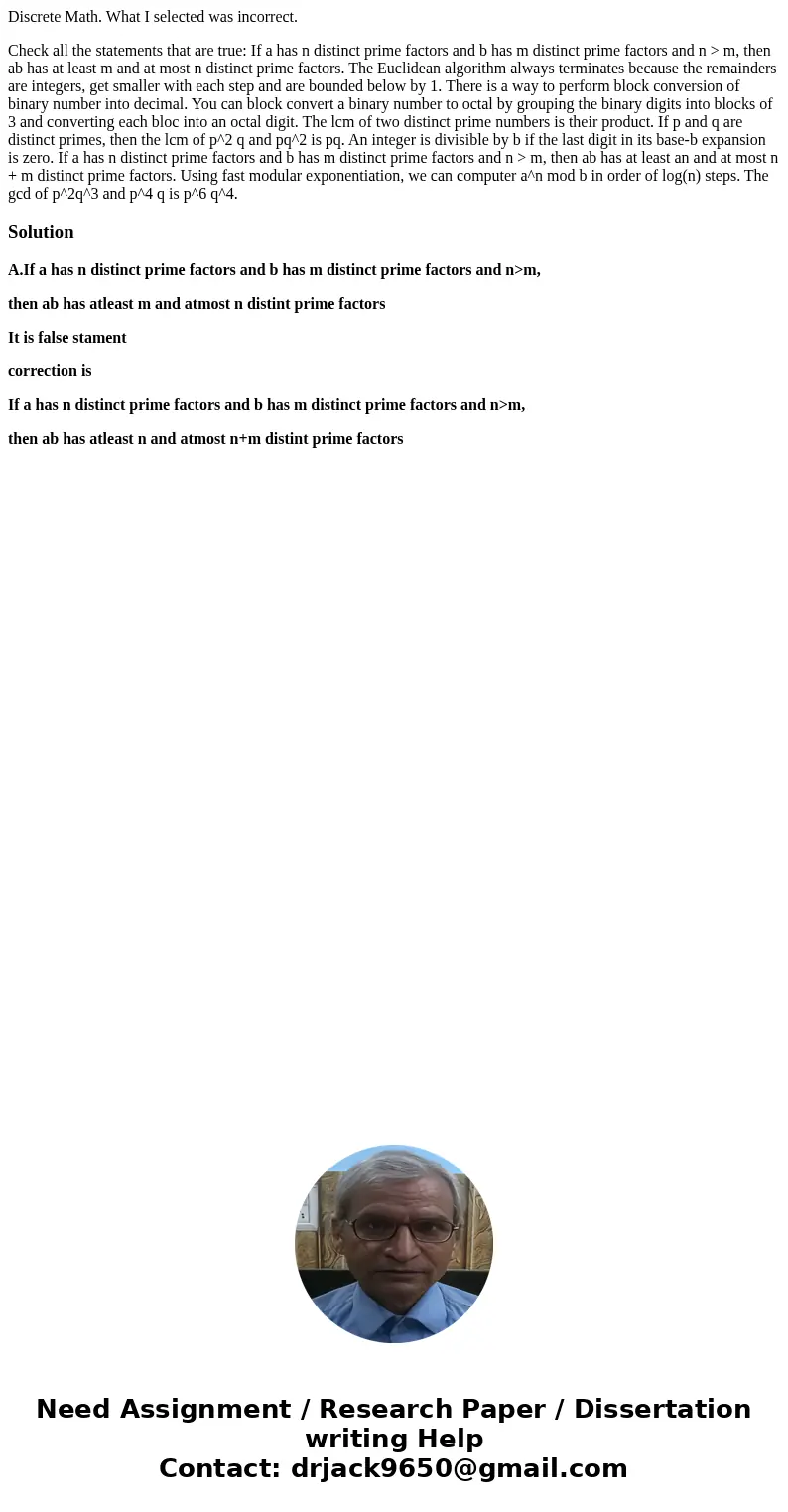Discrete Math What I selected was incorrect Check all the st
Discrete Math. What I selected was incorrect.
Check all the statements that are true: If a has n distinct prime factors and b has m distinct prime factors and n > m, then ab has at least m and at most n distinct prime factors. The Euclidean algorithm always terminates because the remainders are integers, get smaller with each step and are bounded below by 1. There is a way to perform block conversion of binary number into decimal. You can block convert a binary number to octal by grouping the binary digits into blocks of 3 and converting each bloc into an octal digit. The lcm of two distinct prime numbers is their product. If p and q are distinct primes, then the lcm of p^2 q and pq^2 is pq. An integer is divisible by b if the last digit in its base-b expansion is zero. If a has n distinct prime factors and b has m distinct prime factors and n > m, then ab has at least an and at most n + m distinct prime factors. Using fast modular exponentiation, we can computer a^n mod b in order of log(n) steps. The gcd of p^2q^3 and p^4 q is p^6 q^4.Solution
A.If a has n distinct prime factors and b has m distinct prime factors and n>m,
then ab has atleast m and atmost n distint prime factors
It is false stament
correction is
If a has n distinct prime factors and b has m distinct prime factors and n>m,
then ab has atleast n and atmost n+m distint prime factors

 Homework Sourse
Homework Sourse